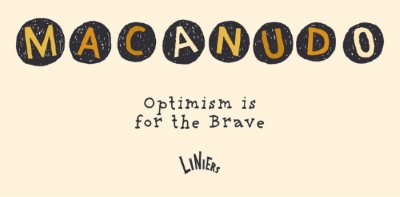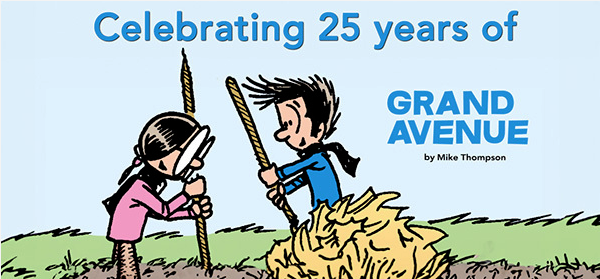CSotD: Random Acts of Political Import
Skip to comments
I had to look up Celeste Maloy, but I already know who Pat Bagley is, and already I knew who’s picking our fruits and vegetables, and I know who isn’t.
There are two ways of looking at this: One is to emphasize the racism, because Maloy has come out in support of Trump’s promise to build concentration camps for immigrants by whom nobody means people from Scotland or Germany or Slovenia or the Czech Republic, though that last one might be negotiable.
Granted, the concentration camps would only be for those who entered the US without proper papers, but we’ve seen how that shakes out on the street and concentration camps are only as straight-shooting and well-run as the people who fill and maintain them.
We’ve already seen college students shot for speaking Arabic in public and the wrong brown Spanish speaker vilified in a Trump ad for something he didn’t do.
And those are just the ones that made national news.
Bagley takes the high road, however, pointing out that many of our fruit and vegetable growers depend on braceros and wondering how the people who favor concentration camps plan to feed themselves.
As for who isn’t working the harvests, I covered the apple industry in northern New York, where legal temporary pickers from Jamaica are critical workers. Those who employ them are required to offer the jobs to American citizens first, but few respond to the ads and fewer still show up for work the next day.
I understand some apple growers elsewhere employ undocumented immigrants, but the apples harvested legally remain affordable. They just refuse to jump off the trees and into the boxes on their own.
I’d suggest Maloy and other Trumpers invent some self-harvesting tomatoes before they start locking up farmworkers.
Or they could have the residents of those camps released for the job. They could inspire them with a sign that says “Work sets you free.”
Juxtaposition of the Day


It’s a good thing there is no requirement for campaign rhetoric to be logically consistent, because, as Jones points out, Trump is in favor of protecting police except when he’s praising those who assault them.
It may be an issue of volume: He attended the funeral of an officer shot while alone, but promises, if elected, to pardon the 120 accused of assaulting police with deadly weapons, and their accomplices.
As Mike Smith points out, this is a case of “Law and order for thee, but not for me.” His supporters have argued that, yes, as president, he could have ordered the assassination of his political opponents without breaking the law.
They also insist that, though Brian Sicknick he struggled with Jan 6 rioters and was pepper-sprayed twice, he died the following day of a series of strokes, so his death had nothing to do with the rioters.

By which logic we shouldn’t have executed Charles Giteau for the assassination of James Garfield, since the president died of sepsis or starvation or perhaps a ruptured gall bladder, having lived two months after his unfortunate encounter with Giteau.
Thomas Nast felt otherwise, but who cares? Nast was an immigrant.


David Rowe, inspired by a Frederick Burr Opper cartoon of Chester Arthur failing to control his administration, accuses Biden of allowing Netanyahu to inflict death, famine and war upon the world.
It’s a reasonable judgment, given what appears to have been a strongly expressed phone conversation between the two leaders Thursday, in the wake of which the Israeli government opened up gateways to allow aid to enter Gaza and implied a greater attempt to limit civilian casualties.
Other cartoonists have apparently failed to realize that an additional arms shipment was approved before the attack on the World Central Kitchen convoy, accusing Biden of approving it after the fact despite his expressions of grief for the deaths.
But not only was the shipment released as a result of long-standing agreements, but the arms specified won’t be delivered for another year, leaving time both for a reneging of the agreement or for a settlement of the crisis.
Rowe’s take, by comparison, stands, since indeed the horses are gone and, even if Biden manages to contain Netanyahu, much of the damage has been done.
What’s left for Biden, at this point, is to continue the crackdown that appears to have (finally) started, possibly with a public halt to the arms trade, but certainly to persuade voters that this is one of several issues for debate in November, and one in which Trump does not offer a more pleasing plan.

Never mind: Bobby will fix it, just as soon as he burns through a few more millions of his runningmate’s fortune.
Matt Wuerker (Politico) aptly calls this a bonfire of the vanities, since Bobby has no more chance of being elected than you or I or a cocker spaniel, and cocker spaniels don’t live to be 35.
The question is how many votes he’ll get and who he’ll take them from, the likeliest case being that, in addition to the anti-vax folks who are likely Trump voters, he’ll draw votes from purists who want to make a protest vote against Biden’s Gaza policies and don’t mind losing their reproductive rights and harvesting their own tomatoes while the concentration camps are being built.
The No Labels Party has No Candidate, which may testify to their grip on reality, while Bobby’s campaign got a substantial donation from a Wyoming Republican who also provides substantial financial support to the Trump campaign, which suggests what the GOP is hoping for.
Citius – Altius – Fortius – Panem – Circenses

Algerian cartoonist Ali Dilem (Cartooning for Peace) hopes for an Olympic truce, which was a part of the original games, though that may be more mythology than history.
It’s a lovely thought, but I’m struck by the fact that his remote is simply muting the war, not shutting it off. That’s not how I define a truce, but it is a good critique of our attention span.
But go ahead and enjoy the games, so long as you get up during the commercials and toss another pail of water on that fire.
And don’t mistake a little bit of progress for a cure, in Gaza or right here.
1936 Olympics

32 Years Later


Comments 7
Comments are closed.